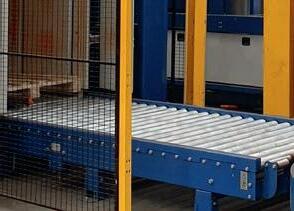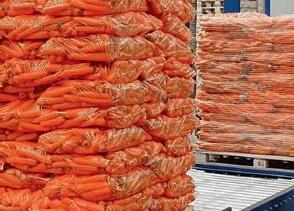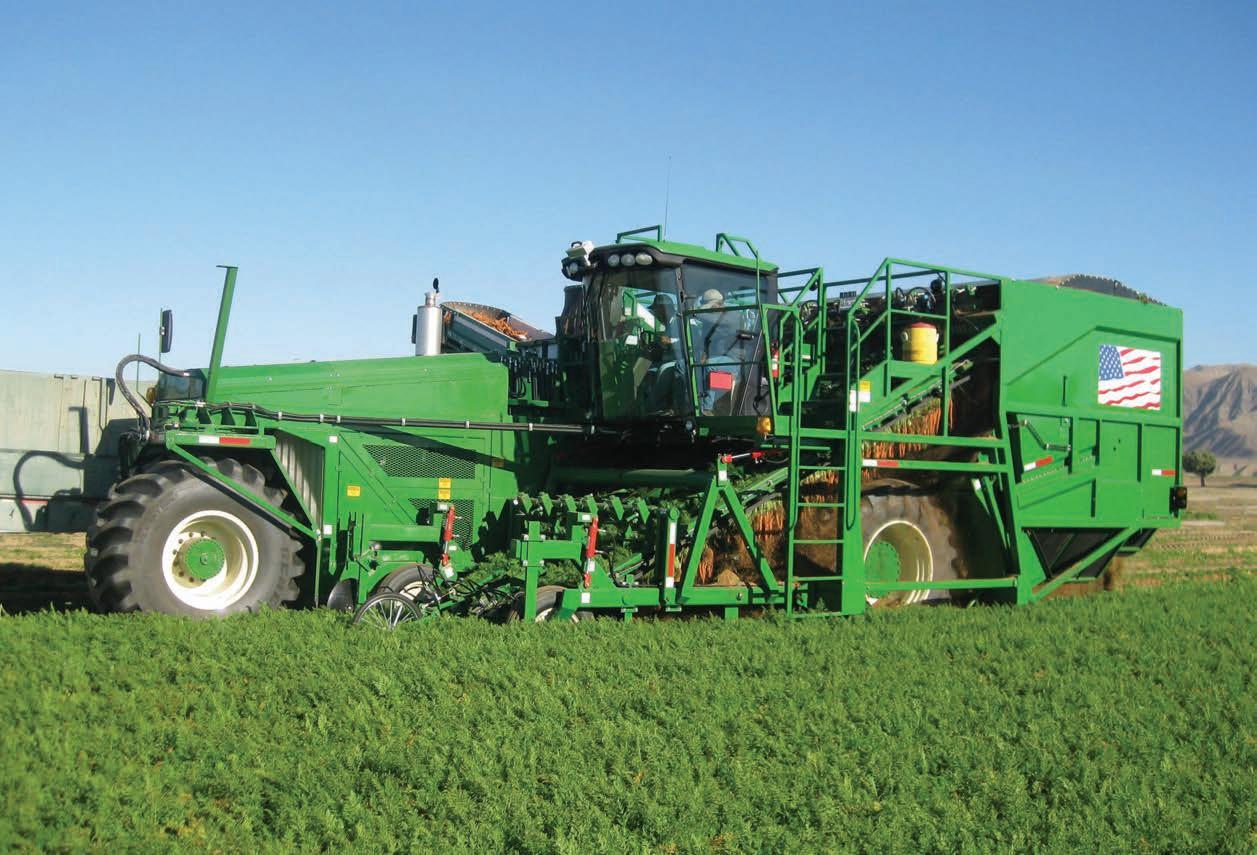





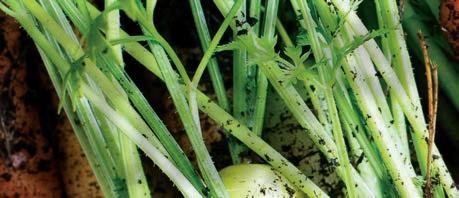








PO Box 333
Roberts, Idaho 83444
Telephone: (208) 520-6461
Circulation: (503) 724-3581
CarrotCountry.com
CARROt COUntRY COntACtS
Editor
Denise Keller editor@ColumbiaMediaGroup.com
Publisher / Advertising Manager
Dave Alexander dave@ColumbiaMediaGroup.com
Director of Operations
Brian Feist brian@ColumbiaMediaGroup.com
EDItORIAL InFORMAtIOn
Carrot Country is interested in newsworthy material related to carrot production and marketing. Contributions from all segments of the industry are welcome. Submit news releases, new product submissions, stories and photos via email to: editor@ColumbiaMediaGroup.com, or call (509) 697-9436.
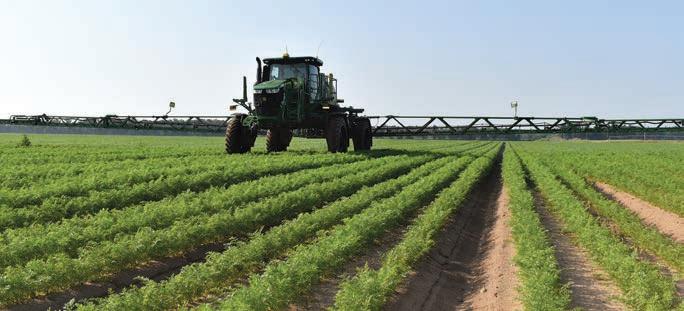
ADvERtISInG SALES
For information on rates, mechanics, deadlines, list rental, direct mail, inserts or other information, call (208) 520-6461 or email: dave@carrotcountry.net
SUBSCRIPtIOnS
U.S. $20 per year
Canada $30 per year
Foreign $45 per year
Subscribe online at: www.CarrotCountry.com/subscribe or call (503) 724-3581
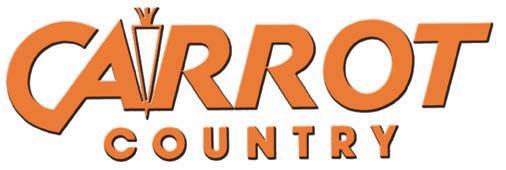
Email address changes/corrections to brian@ColumbiaMediaGroup.com or mail to: Carrot Country PO Box 333 Roberts, ID 83444
From seed to storage, Carrot Country’s 2023-24 Buyers’ Guide provides a list of vendors to help make the season a success. Check out this handy resource on pages 10-13.
Carrot Country magazine (ISSN 1071-6653), is published four times a year and mailed under a standard rate mailing permit at Idaho Falls, Idaho and at additional mailing offices.
Produced by Columbia Media Group PO Box 333, Roberts, ID, 83444
Copyright 2023. All rights reserved. No part of this publication may be reproduced or transmitted in any form or by any means, electronic or mechanical, for any purpose without the express written permission of Columbia Media Group.
For more information contact: Merek Dorf | m.dorf@rijkzwaan.com
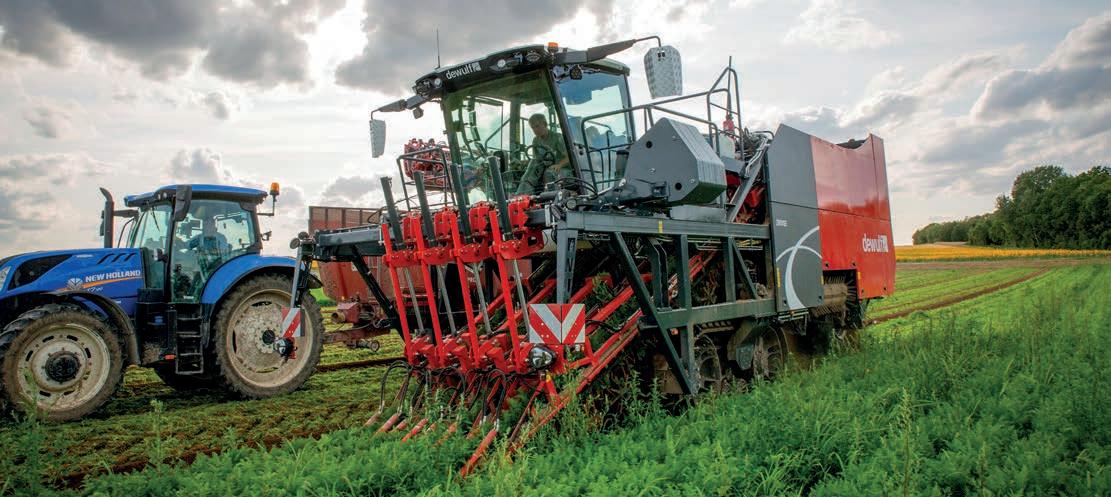
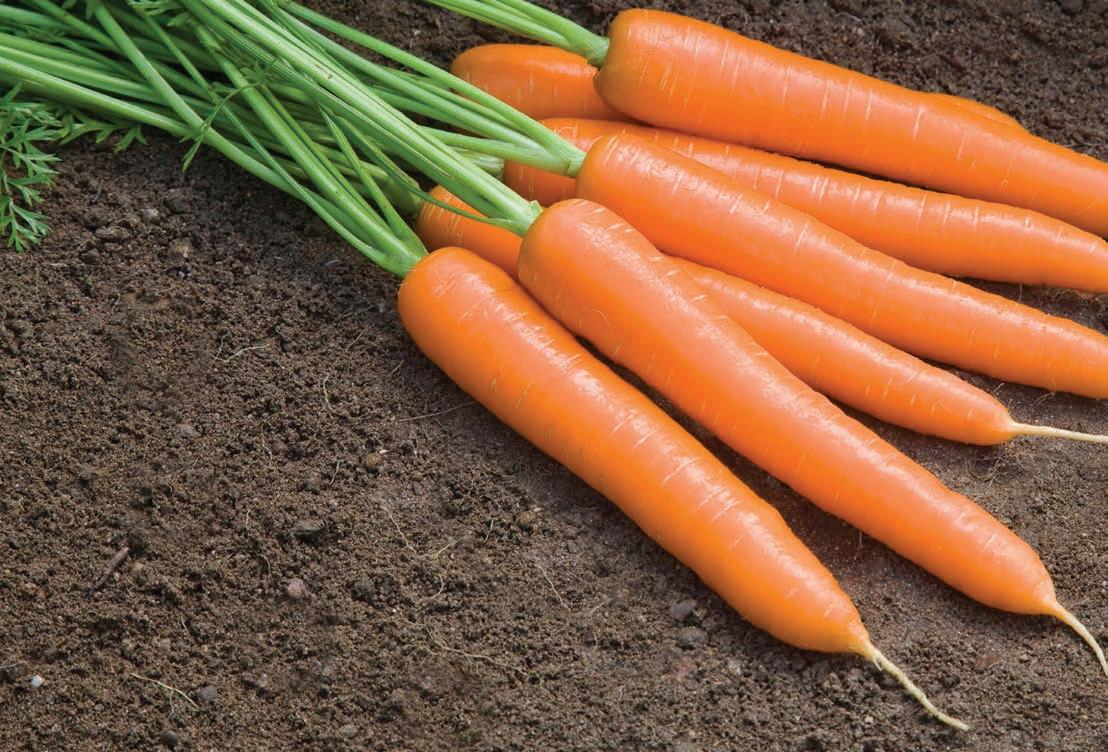
Rijk Zwaan USA & Canada | rijkzwaanusa.com
www.dewulfgroup.com
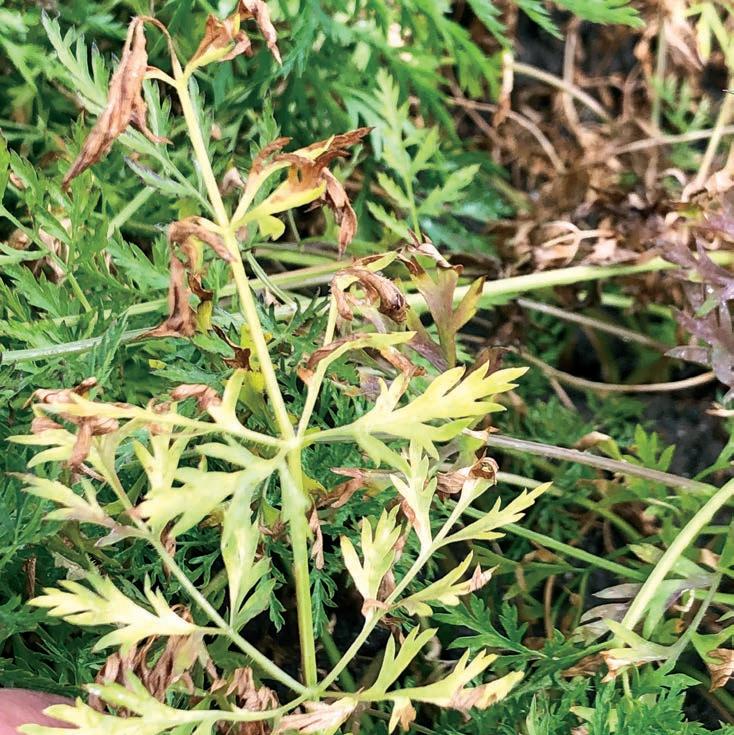
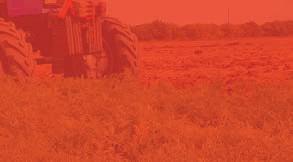

Alternaria leaf blight, caused by the pathogen Alternaria dauci, is a significant problem for carrot producers in California. Symptoms appear as dark brown to black necrotic lesions (often surrounded by a yellow halo) along leaf margins and petioles. These lesions may coalesce and expand to kill the leaves. In severe infections, tops will have a scorched or blackened appearance. Yield losses occur as the carrots cannot be lifted by the tops during mechanical harvest due to weakened tops.
California carrot growers manage Alternaria leaf blight using cultural controls and fungicides. However, there is limited data on the efficacy of organic products (OMRI) labeled for Alternaria leaf blight control in carrots. Another challenge with the OMRIcertified products is the inconsistency in performance.
A biological screening trial was conducted in 2022 to evaluate the efficacy of biological products at the University of California research station in Shafter, California. The objective of this study was to evaluate and identify organic options that can effectively manage Alternaria leaf blight in organic carrot production.
The trial was conducted as a randomized block design with four replications and six treatments. Rates and timings for each treatment are listed in Table 1. Each plot was 30 inches wide and 20 feet in length. Five biological fungicide products, in addition to an untreated control, were evaluated in this trial.
Treatment applications began at the first sign of disease development on June 27 and continued thereafter until Aug. 22.
Treatments were applied using a batteryoperated backpack sprayer calibrated to deliver 50 gallons per acre at 30 psi using a flat fan JSF11002 nozzle. Data on disease incidence was taken four times during the season. At harvest, carrots from a 1-meter row in the middle of each bed were hand harvested, topped and weighed to determine yield per plot.
At the beginning of the trial, the average symptomatic foliage ranged from 0 to 5 percent in different treatments. On the final rating, the average symptomatic area for different treatments varied from 28 to 44 percent. The percentage of symptomatic foliage increased substantially between the third and fourth observations on July 28 and Aug. 9. Statistically, there were no differences among treatments, but the treatments Howler and EcoSwing had lower disease incidence compared to the other treatments (Fig. 1). Yields did not differ significantly among treatments, but the treatments Howler and EcoSwing had numerically higher yields per plot and CWT/acre compared to the other treatments (Fig. 2). Larger data variations across replications might have resulted in non-significant treatment effects at α=0.05.
The trial is being repeated this year.
Carrotgrowers are breathing a sigh of relief that the global fertilizer shortage is largely over. But unfortunately, the shortage has been replaced by instability and uncertainty. While carrot farmers may see falling
that the varying carrot types, with their different root sizes, pull from the ground. In addition, varying produce types will affect the pH of the soil differently, whereas healthy soil shouldn’t be too acidic or too alkaline. When crops are rotated, soil remains strong and healthy, thereby requiring less fertilizer to grow carrots.
require more energy and time to control. For example, it may be necessary to allow for a break in the seedbed and/or break up the soil if it is harboring disease.
Fluctuating fertilizer prices and supply chain challenges are not anticipated to settle down any time soon. As a result, running a successful carrot growing business requires planning, growing strategies and actively evaluating different financial options. For now, growers shouldn’t wait too long to purchase their next batch of fertilizer.
fertilizer prices, they shouldn’t be misled regarding the larger financial picture surrounding the fertilizer market.
Granted, phosphoric acid production is forecasted to increase by 7 percent and urea capacity to increase by 2 percent in 2023. At the same time, potash production is anticipated to decline by 14 percent. And yet, this unfortunately is not the whole story.
The shortage began with the Russian war on Ukraine when the world’s largest producer of fertilizer began having trouble exporting its products due to sanctions against the country. Over time, it turned out that the impact was not as severe as anticipated and more fertilizer became available. However, supply is still unpredictable.
In addition, a strong percentage of fertilizer products are going through a decarbonization process which is affecting their production levels.
All things considered, if farmers wait too long to buy fertilizer for the upcoming season, they run the risk of supplies running out.
To help carrot farmers mitigate risk in this volatile market, while still ensuring a healthy crop, here are four key strategies.
To nurture healthy soil, crop rotation is a well-proven strategy. Rotating different carrot types to other land areas helps even out the varying levels of moisture
Manage input costs broadly, beyond fertilizer.
When crops are managed well, backfill soil costs are reduced. And when variables such as high temperatures and drought are taken into consideration, crop rotation strategies can succeed.
Just like a long-term financial investment, the same approach should be applied to contract pricing. All carrot contracts should be constantly reevaluated, taking into account changing variables and opportunities. For example, farmers may want to consider things such as specialty crops.
Consider this. It might cost one price per acre to raise carrot crop A, including seed, fertilizer, diesel, etc., while carrot crop B costs significantly more per acre to produce. In the short term, it seems that crop A is the way to go. But what if that crop is significantly harder on the soil, which will then impact the size and quality of future crops? These types of decisions must be evaluated with a bigger picture economic mindset.
In addition to the difficulty caused by unstable fertilizer costs, many carrot growers are dealing with the challenge of weeds. Unfortunately, there are many places where weeds have become resistant to some herbicides and now
About the author: Josh Smart is the North American practice leader and chief sales officer for agribusiness, food and cannabis with HUB International and is responsible for leading the strategic initiatives around growing and supporting the agribusiness segment.

Oct. 2-5
International Carrot and other Apiaceae Symposium
York, England
www.carrotsymposium.com
nov. 15-16
Pacific Northwest Vegetable Association Conference and Trade Show
Three Rivers Convention Center
Kennewick, Wash.
Sheri Nolan, (509) 585-5460 or www.pnva.org
To have your event listed, please email Denise Keller, at editor@ ColumbiaMediaGroup.com. Please send your information 90 days in advance.
“All things considered, if farmers wait too long to buy fertilizer for the upcoming season, they run the risk of supplies running out.”
The new SpotOn Soil Moisture Meter from Innoquest is designed to facilitate effective irrigation management by providing users with continuous soil moisture measurements as well as EC (salinity) and soil surface temperature readings.
The unit includes two sets of rubber-mounted probe rods (2.4 and 1.5 inches) that resist bending in dry or rocky soil. The meter maintains accuracy without calibration as long as the rods are not bent or worn. Its ultrahigh frequency (100 MHz) measuring circuit ensures accurate moisture measurements in a variety of soil types and salinity levels.
The SpotOn Soil Moisture Meter, which sells for $995, is manufactured in the U.S. and comes with a one-year warranty.
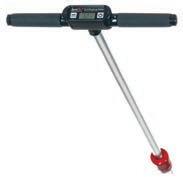
Visit www.innoquestinc.com.
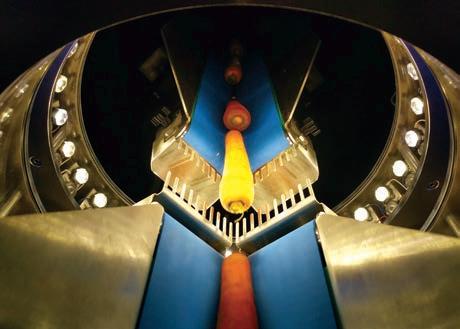
Updates to the Visar Sortop carrot and potato optical sorter are bringing increased throughput, accuracy and efficiency to carrot sorting operations. Among the key updates is new software featuring infrared vision, which increases the accuracy of defect detection. In addition, the sorter features a new in-feed system, which brings an increased hourly sorting capacity. The new feeding system can smoothly align carrots of all sizes into a singular orientation for perfect in-feed to the optical sorter, allowing the machine to view nearly 6 feet of lined-up carrots per second. Visit www.visar-sorting.com.
Innvictis has launched a new line of fungicides that includes Innliven Elite. The dual mode of action fungicide contains pyraclostrobin with difenoconazole. Its combination of preventative and curative activity is made to control a wide range of crop diseases. In carrots, it can be used to control Alternaria leaf spot/blight, Cercospora leaf spot/blight, powdery mildew and southern blight. The fungicide, which provides disease control through translaminar and systemic uptake, also improves stress tolerance and promotes plant growth, according to the company.

Visit www.innvictis.com.
Dewulf has introduced the second generation of its four-row top-lifting harvester: the ZKIVS(E).
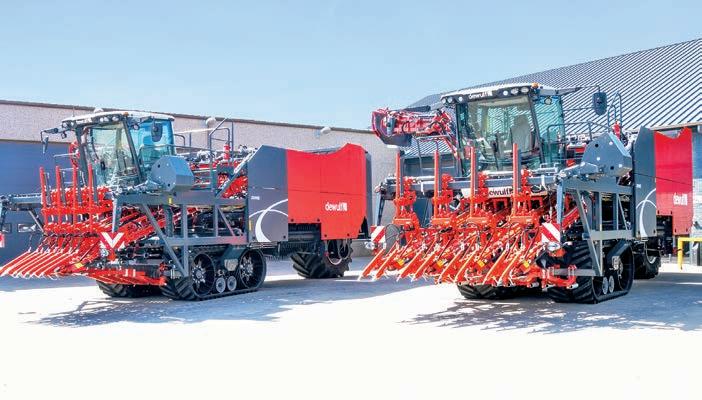
The self-propelled harvester combines stability in the field, a robust and maneuverable machine, quality harvesting and high processing capacity. The updated harvester includes extended cleaning options, a new cutter set, wide elevator with optional hydraulically extendable top, sensors for belt detection, updated cabin features and the ability to harvest at narrow row distances (less than 16 inches).
Visit www.dewulfgroup.com.
Carlos Bonilla is the new director of the Oregon State University (OSU) Hermiston Agricultural Research and Extension Center (HAREC). As director, Bonilla serves as a leader at the station, provides support to conduct research and extension, facilitates communication with stakeholders and collaborates with the main OSU campus.
Bonilla hails from Chile, where he gained almost 20 years of faculty experience and worked with many crops similar to those grown on the West Coast of the U.S. including carrots. He will use his background in agronomy, hydraulic and environmental engineering, and soil science to work on soil- and water-related
Bonilla saw the position at the HAREC as an interesting opportunity to use his leadership skills to contribute to research that addresses environmental challenges while helping farmers increase yield.
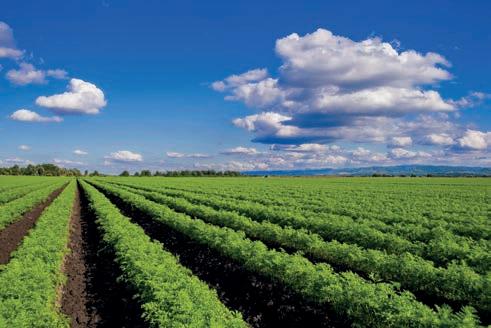
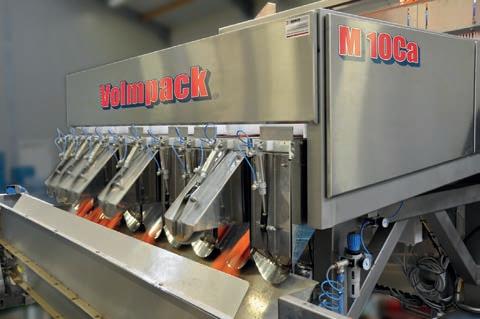
Looking ahead, Bonilla has four goals for the station. He and his team will work to continue cutting-edge research and science to enhance farmers’ competitiveness, maintain a local and regional focus in research to meet grower needs, effectively communicate the relevance and impact of research and discoveries, and develop dynamically adaptable recommendations.
Carrot Country caught up with Bonilla to learn more about the new man at the helm of the HAREC.

Tell us something about yourself that people might find surprising.
I like driving a lot, which is required for this position at this station. I know some people hate driving on the highway or freeway. But I like to drive a lot. If you put good music in your car and you have a decent car, I like to drive and see the landscape.
As a child, what did you want to be when you grew up?
I wanted to be an airplane pilot, and another job was some kind of builder. I have a lot of the skills and enjoy working as a carpenter. I love tools and I have a lot of tools. Since I was a kid, I was working right next to my dad all the time. He’s an engineer, but he was very good at building things.
If Hollywood made a movie about your life, who would you like to see cast as you?
I would like to have the brilliance and the attitude that Harrison Ford has in his movies. He’s a good example of a good actor. He played Indiana Jones and was in Star Wars, and they’re very different movies, and he became a different person in a very easy way. That’s interesting because I like when an actor adapts and puts his skills to a new movie, and that’s something I try to do every day in the way that I talk to people. One of the challenges in this position is one minute you are talking to a farmer, the next minute you can be talking to a politician, the next time you can be talking to a student, and then you are talking to a technician. So you have to adapt in some way to the person you are talking to. It’s not acting, but you need to have the right words to introduce a topic in a very specific way to each of them.
If you had to eat one meal, every day for the rest of your life, what would it be?
A roast beef sandwich, that’s one of my favorites. I will order my standard recipe: a roast beef sandwich with pepper jack, lettuce, tomatoes, green peppers and olives.
What advice do you have for growers competing in today’s market?
Agriculture is something that has been in my family for a while, and I’m very familiar with that and see how hard it is. I couldn’t be arrogant to say I have advice for you guys because farmers know a lot. However, one thing I can say is our purpose is to help in that process, provide them with new technologies, the best practices and the best recommendations for their activities. And they will always find a group of people here ready to help them.
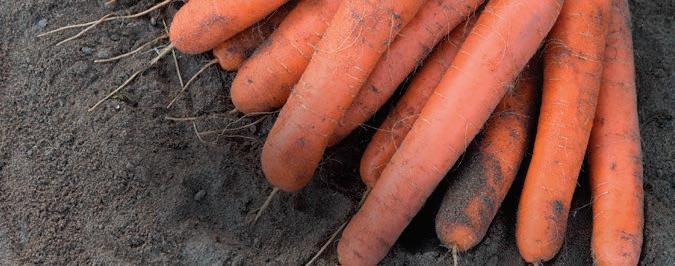
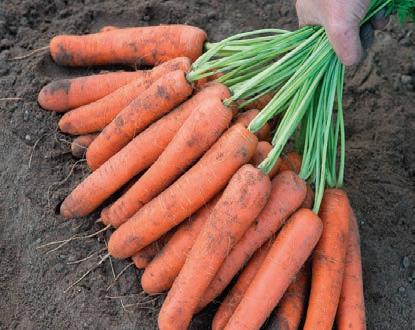

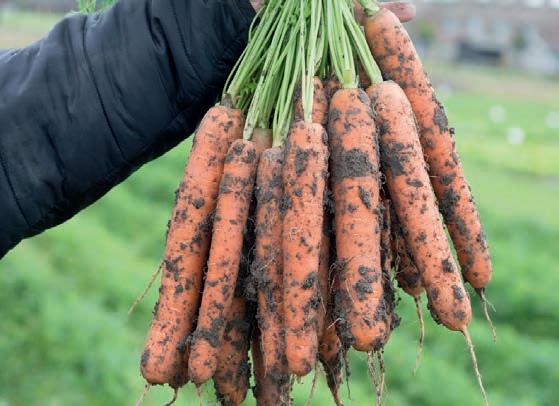
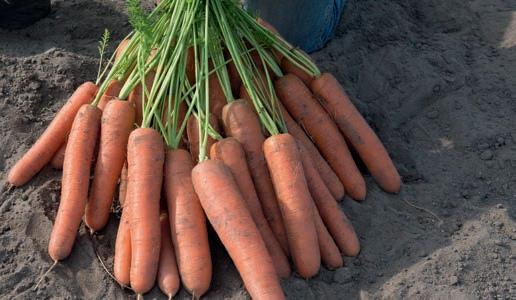
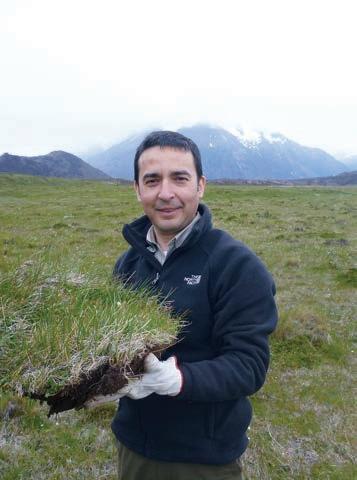
NAPOLI
Very full-sized Nantes with strong dark green tops and cylindrical, smooth blunt roots. A specialized variety with a sweet taste when sown in fall for winter harvest.
Resistance IR: Ar / Cc / Ps, Pv
YAYA
Similar to Nelson, with more uniform roots and plant vigor. The 5 1/2–6 1/2” roots have mild flavor and crisp, juicy texture with early sugar development. Strong, compact tops for bunching.
Resistance IR: Ar / Cc / Ps, Pv
Chelsey Lenczyk - Organic Lead, Home & Farm Market Manager
T: 267-838-0078 E: c.lenczyk@bejoseeds.com
NAVAL


A Nantes type that produces very shapely, uniform, hairless roots 7-9 inches long. Crisp and sweet, Naval resists cracking with an added bonus of a long shelf life.
Resistance IR: Ad / Ar / Cc
bejoseeds.com
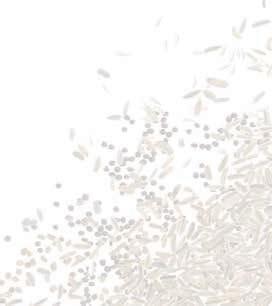
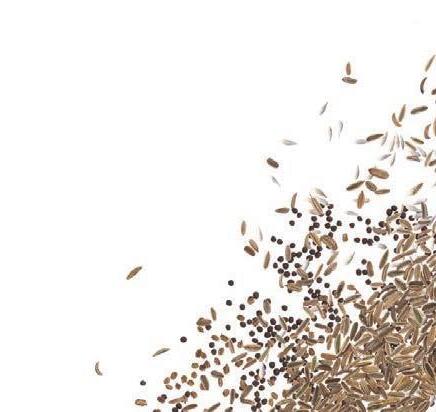

Thereare a lot of moving parts involved in growing and marketing a carrot crop - from needing the right products to protect your crop from pests and pathogens to having the right equipment to efficiently navigate the season. For most growers, packers and shippers, this translates into a constant to-do list, shopping list and wish list.
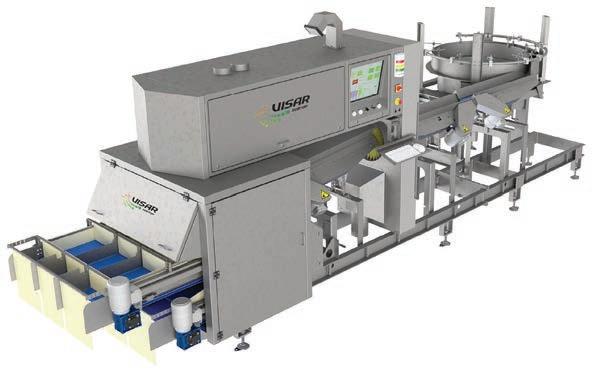

Here are some resources to help you enjoy a successful season, from seed to storage.
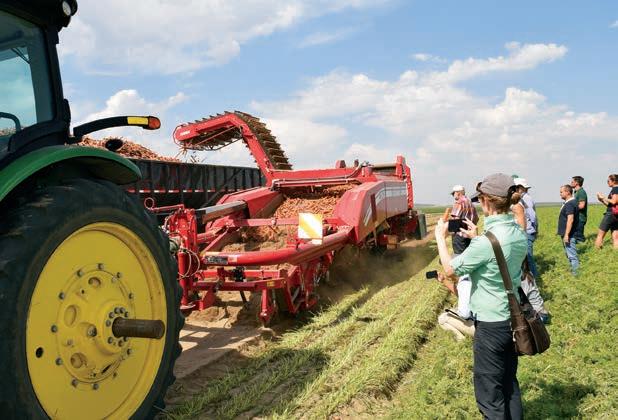
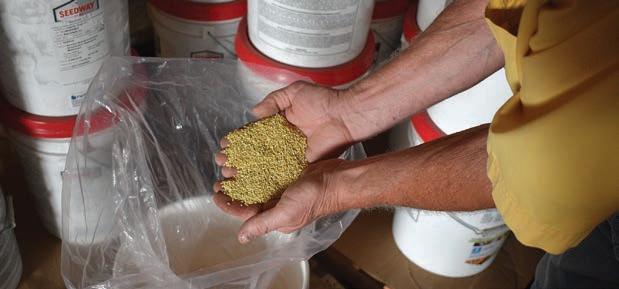
BAYER
cropscience.bayer.us

Minuet fungicide
FERTICELL
ferticellusa.com

ProPrimer 2-0-0+F, Universal 0-0-1, Pro K 0-0-20
gowanco.com
(800) 883-1844
Reason 500 SC fungicide, Badge X2 fungicide/bactericide, EcoSwing botanical fungicide, M-Pede insecticide/miticide/ fungicide, Previsto fungicide/bactericide

NOVASOURCE
novasource.com

(800) 525-2803
Solmenda & Sectagon
TERRAMERA
tryrango.com

(800) 597-9509
Rango
DEWULF
dewulfgroup.com


32 51 20 58 71
Dewulf Zkivse
Self-Propelled 4-Row Carrot Harvester
SPUDNIK
spudnik.com
(831) 240-9600
ASA-LIFT North American Sales Distributor As part of the Grimme Group, ASA-LIFT is a leading international company developing, producing and distributing vegetable harvesters. For more than 80 years, ASA-LIFT machines have been sold all over the world.
UNIVERCO

univerco.com
(450) 245-7152
Mini-Veg, G4-Pro, Mac II (carrot harvesters)
Univerco has been building carrot harvesters since 1978 and is now offering a complete range of harvesters from the smaller 1-row machines that will fit on 60 HP tractors all the way up to multi-row self-propelled and everything in between. A solution for root crops production in any soil type, weather conditions or volume.
VOGEL ENGINEERING
vogel-engineering.com

(231) 821-2125
Computer individual row head height system, 2,3,4,6 & 8 rows conventional roller bar or high-speed crowing, precision computer controlled planting population systems.

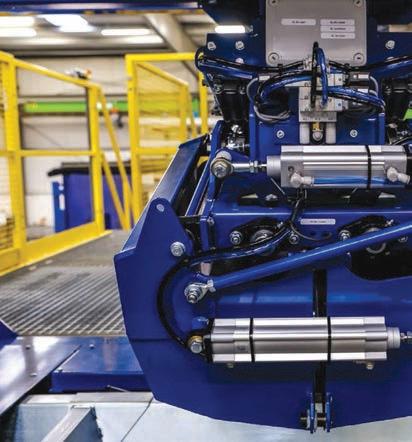
KERIAN MACHINES INC.
kerian.com
1709 Hwy 81 S, PO Box 311
Grafton, ND USA 58237
(701) 352-0480
sales@kerian.com
Kerian Speed Sizer.
RIET VELD EQUIPMENT
rietveldequipment.com
(815) 936-9800
john@ rietveldequipment.com

Installation and full service.
Full washing and grading lines.
Allround, Tosca, PIM, Protec processing equipment.

VERBRUGGEN
verbruggen-palletizing.com

(509) 531-7350
Specialists in palletizers and palletizing robots.
VOLM COMPANIES

volmcompanies.com
Antigo, WI (Corporate Headquarters)
1804 Edison St., Antigo, WI 54409
(800) 253-4737
Idaho Falls, ID
3721 W 65th South
Idaho Falls, ID 83402
(208) 524-0600
Pasco, WA
5702 Industrial Way Suite 101
Pasco, WA 99301
(509) 547-3437
Fresno, CA
3440 S East Ave. Suite 104
Fresno, CA 93725
(800) 253-4737
Monte Vista, CO
1100 S Country Rd. 3 E
Monte Vista, CO 81144
(800) 253-4737
Ancaster, Canada
1283 Cormorant Rd. Suite 1
Ancaster, Ontario L9G 4V5
(800) 253-4737
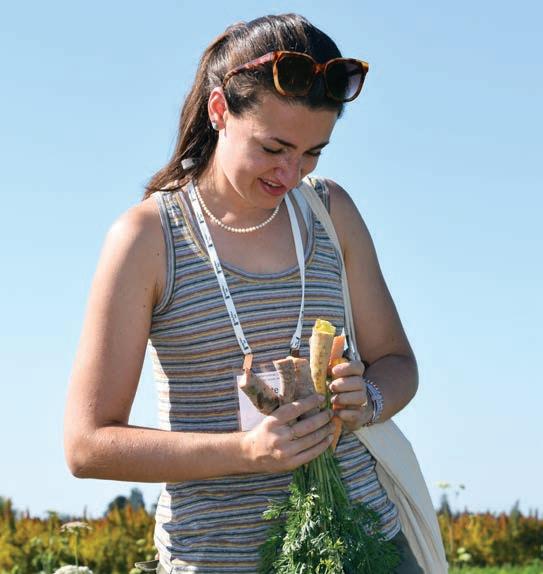
GEARMORE, INC.

gearmore.com
13477 Benson Ave.
Chino, CA 91710
(800) 833-3023
sales@gearmore.com
MONOSEM INC.

monosem-inc.com
1001 Blake St.
Edwardsville, KS 66111
(913) 438-1700
Custom planters built-to-order.
SIMON machines-simon.com

+33 (0)2 40 33 32 60
Simon has a full range of bed formers (including the CultiRateau).
SOLEX CORPORATION
solexcorp.com
220 South Jefferson St. Dixon, CA 95620
(707) 678-5533
Stanhay planters. 1, 2, 3 or 4 lines per metering unit.
BEJO SEEDS bejoseeds.com

(805) 473-2199
Carrot seed.
GERMAINS
SEED TECHNOLOGY germains.com

(408) 848-8120
nasales@germains.com
Carrot seed.
VILMORIN MIKADO
vilmorinnorthamerica.com

(831) 771-1500
Speedo F1, Bolero F1, Volcano F1, Gold Nugget F1, Siroco Fi (carrot varieties).
AGRI-STOR agri-stor.com
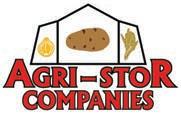
(208) 733-7000
Humidification, Refrigeration, Ventilation, Controls, Post-Harvest.
RIJK ZAWAAN
rijkzwaanusa.com

(831) 455-3000 (US Office)
Ymer RZ (carrot variety).

STOKES SEEDS, INC. stokeseeds.com

13031 Reflections Dr. Holland, MI 49424
(800) 962-4999
Carrot seed.
ACCURATE:
Precisely orients and sorts carrots
GENTLE:
Separates without damaging carrots
FAST:
Thirteen standard models custom-designed to meet your needs sort from 1000 lb/hr to 30,000 lb/hr
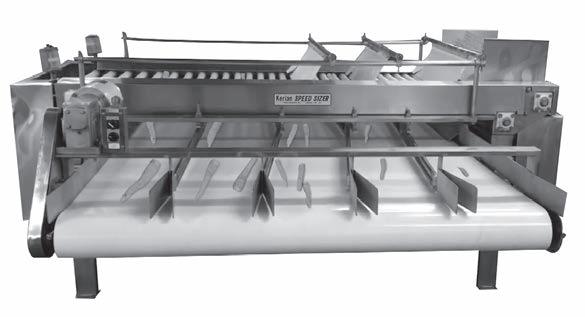
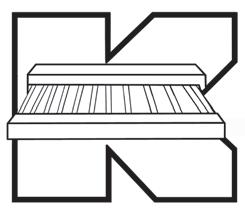
SIMPLE:
Effective but simple design provides a rugged, low cost, low maintenance machine at a high value to our customers. It can even be used in the field!
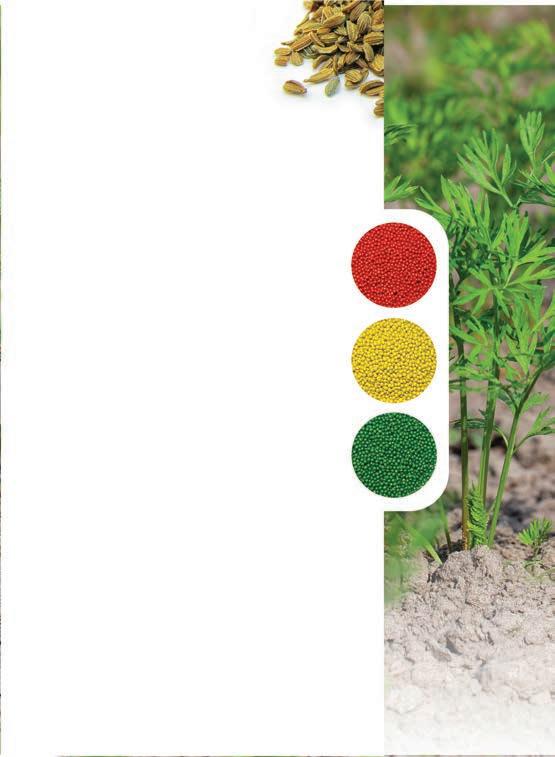


Vive Crop Protection Inc. continues to grow its U.S. sales team with the addition of three new regional sales managers: Nichole Drake, Pacific Northwest regional sales manager; Jay Holmdal, Eastern regional sales manager; and Dennis Philpot, Great Lakes regional sales manager.
Drake previously worked as a Crop Vitality specialist at TKI. Now at Vive, she will be working in Oregon, Washington, Montana and northern Idaho.
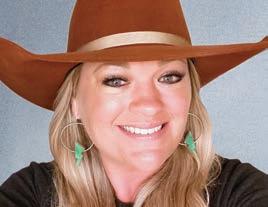
Holmdal comes to Vive from Corteva Agriscience, where he worked as the Northeast regional sales manager for Alforex Seeds. Prior to that, he held various positions in the crop protection and row crop seed business at Dow AgroSciences. Holmdal will be covering Maine to North Carolina.

Philpot previously worked as a specialty products territory manager at The Andersons. In his new role at Vive, he will be working in Michigan, Ohio and northern Indiana.
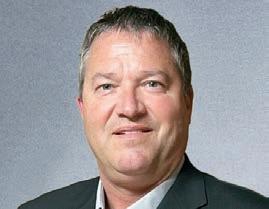
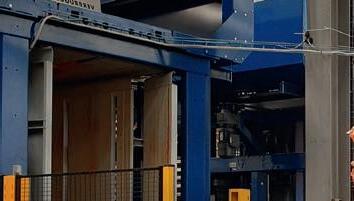


Vegetable breeding company Enza Zaden has acquired a carrot breeding program from the German company Carosem, a pure carrot breeding company specializing in the breeding of Nantes and Flakkee types. This acquisition comprises the carrot breeding program, several commercial varieties and inventory.
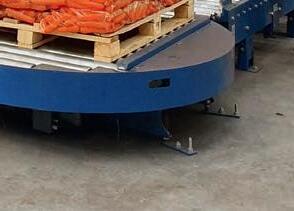
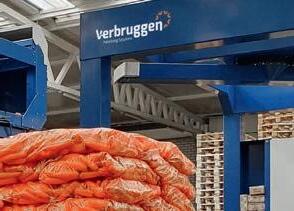
The addition of carrots expands Enza Zaden’s product portfolio, which includes lettuce, tomato, onion, melon, sweet pepper, cucumber and other vegetable crops. The company hopes to become a leading player in the carrot market.
